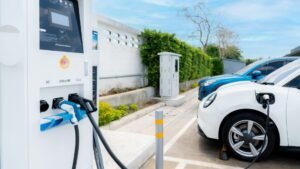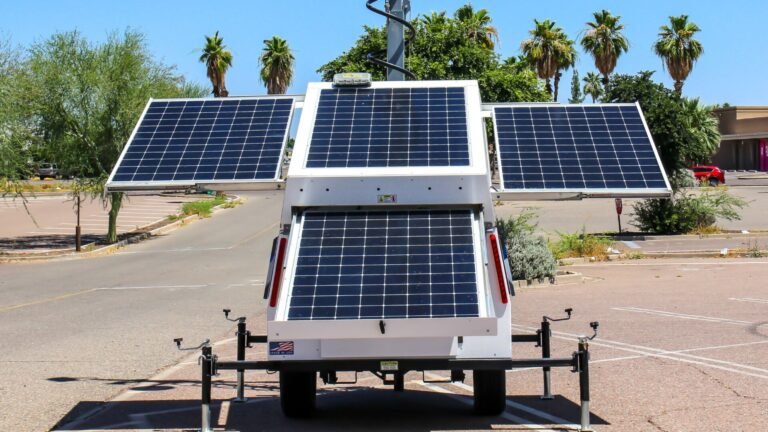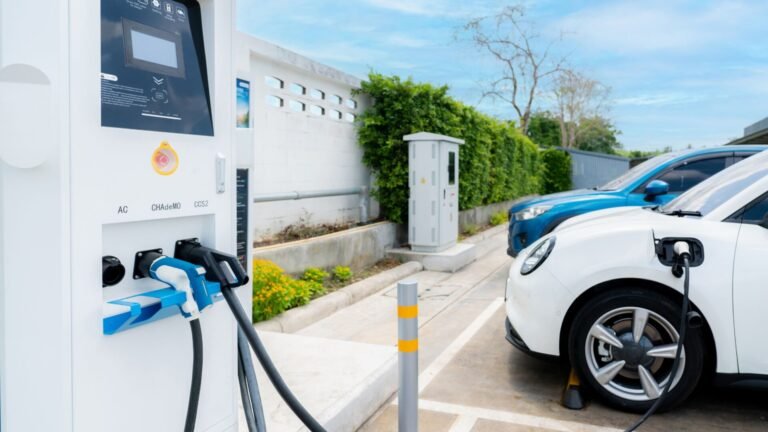The solar energy sector in Europe has seen significant advancements over the past few years, with artificial intelligence playing a crucial role in this transformation.
As we move further into 2024, the integration of AI into solar energy management in Europe is becoming more prominent, leading to improved efficiency, cost savings, and sustainability.
This blog explores the various ways AI is revolutionizing solar energy management in Europe, highlighting the key benefits and future prospects.
The Rise of Solar Energy Management in Europe
Solar energy management in Europe has grown exponentially due to the continent’s commitment to renewable energy sources.
Countries like Germany, Spain, and Italy have been at the forefront, implementing large-scale solar projects and adopting cutting-edge technologies. However, managing these vast solar installations efficiently and effectively remains a challenge.
This is where AI comes into play, offering innovative solutions to optimize solar energy production and distribution.
AI-Powered Predictive Maintenance
One of the significant ways AI is transforming solar energy management in Europe is through predictive maintenance.
Solar panels and related equipment require regular maintenance to function optimally. Traditional maintenance methods can be time-consuming and costly.
AI-driven predictive maintenance uses data analytics and machine learning algorithms to predict potential failures and maintenance needs before they become critical.
This not only reduces downtime but also extends the lifespan of solar installations, ensuring continuous and efficient energy production.
Enhanced Energy Forecasting
Accurate energy forecasting is crucial for the effective management of solar energy systems. AI algorithms analyze historical weather data, real-time weather conditions, and solar panel performance to provide precise energy forecasts.
This enables energy providers to predict the amount of solar energy that will be generated, allowing for better grid management and energy distribution.
Improved forecasting also helps in balancing supply and demand, reducing energy wastage, and enhancing the overall efficiency of solar energy management in Europe.
Optimizing Energy Storage
Energy storage is a critical component of solar energy management. AI technology optimizes the use of energy storage systems by predicting energy generation and consumption patterns.
AI can determine the best times to store excess energy and when to release it, ensuring a stable energy supply even during periods of low sunlight.
This optimization leads to more efficient use of energy storage, reducing costs and increasing the reliability of solar energy systems.
Smart Grid Integration
The integration of AI with smart grids is another significant advancement in solar energy management in Europe.
AI enables real-time monitoring and control of energy flows within the grid, allowing for more efficient distribution of solar energy.
Smart grids can automatically adjust to changes in energy demand and supply, ensuring a balanced and stable grid. This integration also facilitates the incorporation of other renewable energy sources, creating a more resilient and sustainable energy network.
Improved Energy Efficiency
AI-driven energy management systems analyze vast amounts of data from solar panels, weather conditions, and energy consumption patterns to identify areas for improvement.
These systems can suggest adjustments to maximize energy efficiency, such as optimizing the angle of solar panels, scheduling maintenance at the right times, and managing energy storage more effectively.
As a result, solar energy management in Europe becomes more efficient, reducing operational costs and increasing the overall productivity of solar installations.
AI in Solar Panel Manufacturing
AI is also making strides in the manufacturing of solar panels. AI algorithms can analyze production processes to identify inefficiencies and suggest improvements.
This leads to higher quality solar panels with better performance and longer lifespans. Additionally, AI-driven quality control ensures that only the best panels reach the market, enhancing the overall reliability of solar energy systems.
Reducing Carbon Footprint
The adoption of AI in solar energy management contributes to the reduction of carbon footprints. By optimizing energy production, storage, and distribution, AI helps in minimizing energy waste and maximizing the use of renewable energy sources.
This not only lowers greenhouse gas emissions but also supports Europe’s goals for a sustainable and eco-friendly future.
Case Studies: AI Transforming Solar Energy Management in Europe
Germany: AI-Enhanced Solar Farms
Germany has been a leader in solar energy adoption. Recently, several solar farms in Germany have integrated AI systems to enhance their operations. These AI systems monitor weather conditions, predict energy output, and manage energy storage, leading to significant improvements in efficiency and cost savings.
Spain: AI-Powered Solar Energy Forecasting
In Spain, AI-powered forecasting tools have been implemented to improve the accuracy of solar energy predictions. These tools analyze vast amounts of data to provide precise forecasts, allowing for better grid management and reducing the reliance on fossil fuels.
Italy: Smart Grid Integration
Italy is focusing on integrating AI with smart grids to enhance the distribution of solar energy. AI-driven smart grids in Italy adjust energy flows in real-time, ensuring a stable and balanced energy supply. This integration supports Italy’s commitment to renewable energy and sustainability.
The Future of Solar Energy Management in Europe
As AI technology continues to evolve, its impact on solar energy management in Europe is expected to grow.
Future advancements may include more sophisticated AI algorithms for energy forecasting, improved predictive maintenance systems, and enhanced integration with other renewable energy sources.
Additionally, the ongoing development of AI-driven energy storage solutions will further boost the reliability and efficiency of solar energy systems.
In conclusion, AI is playing a transformative role in solar energy management in Europe. From predictive maintenance and energy forecasting to smart grid integration and improved energy efficiency, AI is revolutionizing the way solar energy is produced, stored, and distributed.
As we look towards the future, the continued integration of AI in solar energy management promises to drive further advancements, supporting Europe’s transition to a sustainable and renewable energy future.
By leveraging AI technology, Europe is not only enhancing the efficiency and reliability of its solar energy systems but also paving the way for a greener and more sustainable world.
The transformation of solar energy management in Europe through AI is a testament to the continent’s commitment to innovation and environmental stewardship.






